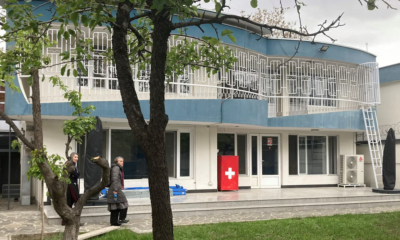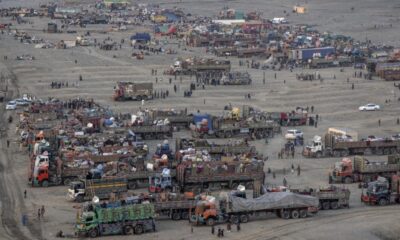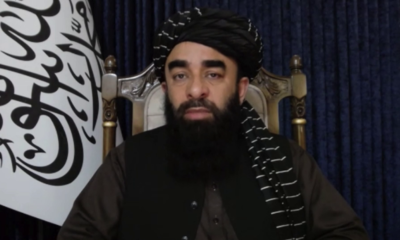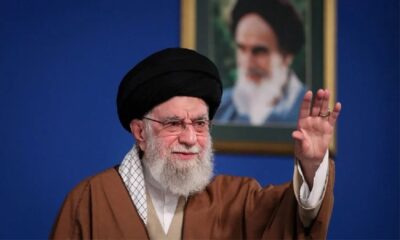Latest News
RSF calls on Afghan govt to protect journalists
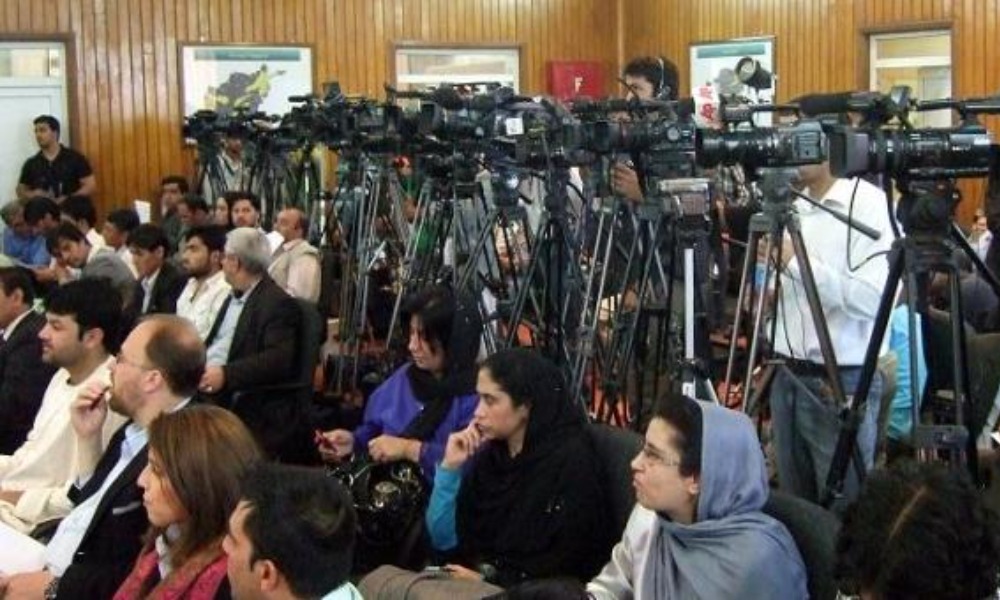
Reporters Without Borders on Thursday called for the Afghan government to make every effort to protect media workers in Afghanistan.
In a statement issued by the organization, RSF also said it was exploring all possible ways to help end the spiral of violence in the country.
This comes amid a string of assassinations of media workers in the country – the latest being on January 1 of Ghor radio journalist Bismillah Adel Imaq.
Imaq, the director of the Voice of Ghor radio station, was gunned down as he was returning home in Firoz Koh, the capital of Ghor, on the afternoon of 1 January. He become the first Afghan journalist to be assassinated in 2021 and the fifth media worker to be killed in the past two months.
Imaq had been the target of two prior assassination attempts, the latest in November, and had reported the threats against him to the authorities. After they took no steps to protect him, he filed complaints with journalists’ associations.
The other media victims of the past two months are Mohammad Aliyas Dayee of Radio Free Europe/Radio Liberty’s Pashto-language service, murdered in Lashkargah on 12 November, Malalai Maiwand, a TV presenter and representative of the Centre for the Protection of Afghan Women Journalists (CPAWJ), and her driver Taher Khan, who were murdered in Jalalabad on 10 December, and Rahmatollah Nekzad, a reporter for international media, who was gunned down in Ghazni on 21 December.
The National Directorate of Security (NDS) and the police say that eight individuals linked to the Taliban have been arrested as suspects in these four murders.
“The impunity and opaqueness surrounding the murders of journalists are a major scourge in Afghanistan, but a godsend for all those seeking to destroy press freedom in this country,” said Reza Moini, the head of RSF’s Iran-Afghanistan desk.
“It is vital that the Afghan authorities guarantee and reinforce the safety of media personnel. At the same time, RSF is exploring all possible international remedies for ending the spiral of violence,” he said.
Latest News
Switzerland re-establishes presence in Kabul with humanitarian office
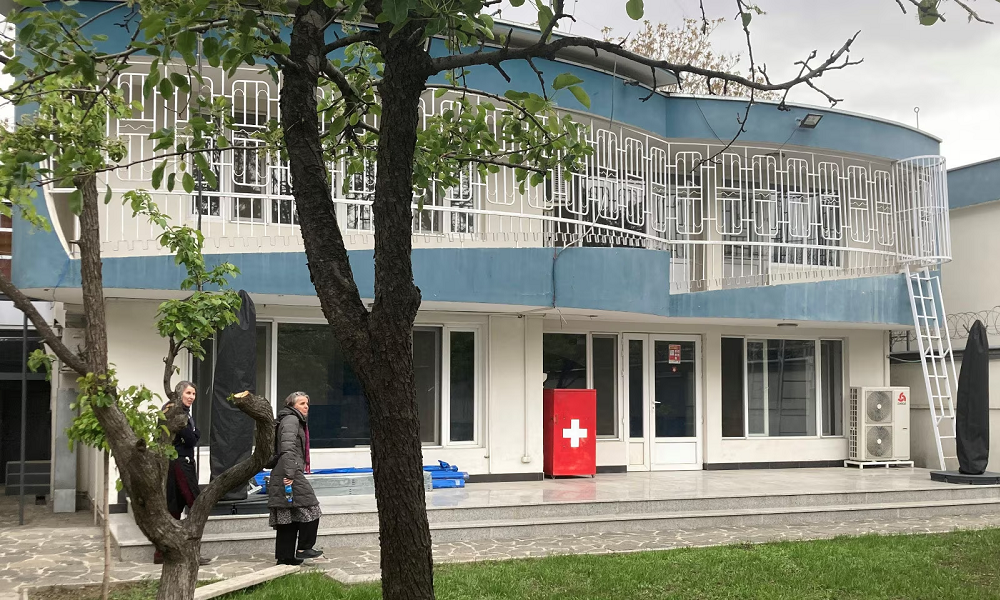
Switzerland’s foreign ministry announced on Monday it re-established its presence in Kabul by opening a humanitarian office to assist Afghanistan’s most vulnerable populations.
The ministry said in a statement that with 24 million people in Afghanistan relying on humanitarian aid and most of the population living below the poverty line, the office aims to provide critical support.
Four specialists from the Swiss Humanitarian Aid Unit (SHA), along with ten local employees, are now working on the ground. Their efforts are focused on ensuring that vulnerable communities receive the necessary resources to meet their basic needs, helping to alleviate the ongoing humanitarian crisis in the country, the statement read.
Since the IEA’s takeover in August 2021, Switzerland closed its cooperation office in Kabul and evacuated all its staff.
According to the statement, initially, the SDC team responsible for Afghanistan continued its programmes from Bern. Since February 2023, it has been operating from the Pakistani capital Islamabad and conducting regular visits to Kabul in order to continue the SDC’s programmes for Afghanistan.
This was a much-needed move in order to better respond to the needs of vulnerable communities in Afghanistan, according to the SDC’s deputy director general and head of its Humanitarian Aid Division, Dominik Stillhart.
Effective support for vulnerable communities requires direct dialogue with the people, efficient coordination between the aid organizations on the ground and a comprehensive understanding of the situation. This applies to all crisis areas where humanitarian aid is needed, not just Afghanistan. SHA members must be in a position to provide a flexible and rapid response to local people’s needs. This can only be achieved with a field presence, said Eric Marclay, who heads the office in Kabul.
Latest News
Pakistan plans to expel 3 million Afghan refugees this year
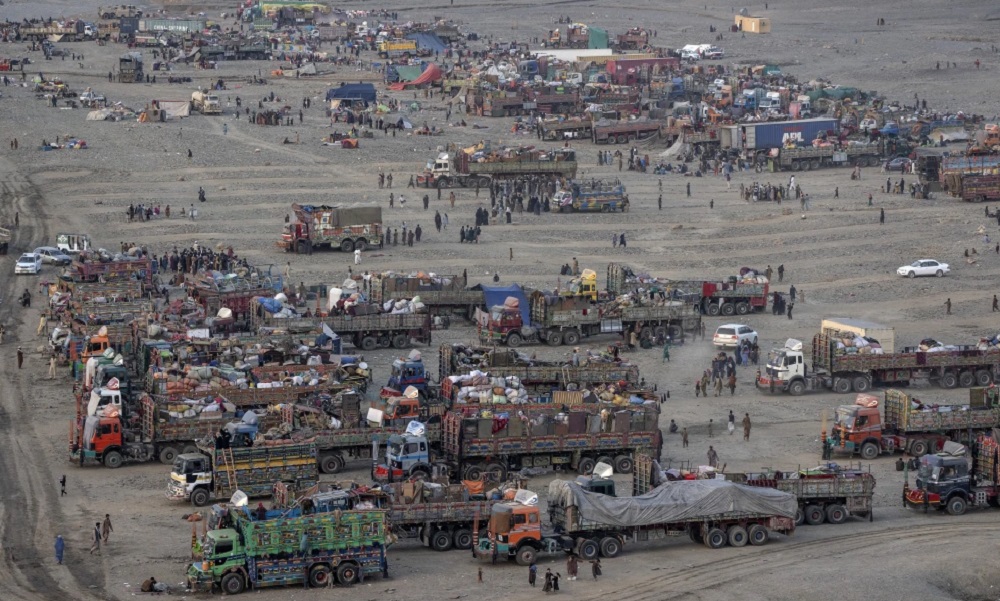
Pakistan plans to expel 3 million Afghans from the country this year, as a deadline for them to voluntarily leave the capital and surrounding areas expired on Monday, The Associated Press reported.
It’s the latest phase of a nationwide crackdown launched in October 2023 to expel foreigners living in Pakistan illegally, mostly Afghans. The campaign has drawn fire from rights groups, the Islamic Emirate, and the U.N.
Arrests and deportations were due to begin April 1 but were pushed back to April 10 because of the Eid al-Fitr holidays marking the end of Ramadan.
About 845,000 Afghans have left Pakistan over the past 18 months, figures from the International Organization for Migration show.
Pakistan says 3 million Afghans remain. Of these, 1,344,584 hold Proof of Registration cards, while 807,402 have Afghan Citizen Cards. There are a further 1 million Afghans who are in the country illegally because they have no paperwork.
Pakistan said it will make sure that Afghans do not return once deported.
Authorities wanted Afghan Citizen cardholders to leave the capital Islamabad and Rawalpindi city by March 31 and return to Afghanistan voluntarily or be deported.
Latest News
Some countries preventing Afghanistan from gaining its seat at the UN

The Islamic Emirate’s spokesperson Zabihullah Mujahid says some Western countries, including the US, are preventing Afghanistan from gaining its seat at the United Nations.
Mujahid added that the US and its allies hold significant influence over the policies of the UN, and due to their defeat in the Afghanistan war, they are attempting to continue wartime policies.
“Some countries that fought against the Afghans for twenty years still have not changed their wartime policies and continue along the same path, which naturally has its effects,” said Mujahid.
He emphasized that the Afghan people have the right to secure this seat, and the IEA will continue to work to obtain it.
He also rejected the notion of Afghanistan being isolated, stating that despite Western pressures, the acting government has expanded its diplomatic relations with regional and global countries.
He stated: “Afghanistan is not isolated; every country naturally faces some challenges with others, but we have extensive regional and international engagements.”
However, experts believe that the UN will not grant Afghanistan’s seat to the IEA until they take concrete steps to meet the international community’s preconditions, such as establishing an inclusive government, ensuring human rights—especially women’s and minority rights—and effectively combating terrorism and narcotics, to satisfy the world.
Despite over three and a half years since the IEA’s takeover, no country has officially recognized the regime.
Meanwhile, many countries have engaged with the IEA and established good diplomatic relations with the caretaker government, which the IEA believes serves as a form of recognition of Afghanistan’s current government.
-

 Latest News5 days ago
Latest News5 days agoAfghanistan has the right to access Amu River’s water: Uzbek minister
-

 Latest News4 days ago
Latest News4 days agoAmnesty international urges Pakistan to halt Afghan deportations
-
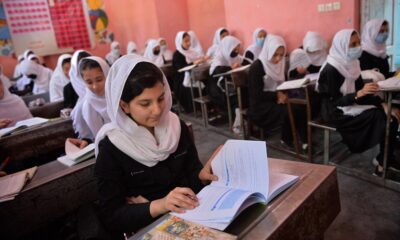
 Latest News5 days ago
Latest News5 days agoUN ‘deeply disappointed’ over ongoing ban on girls’ secondary education
-

 Latest News4 days ago
Latest News4 days agoAfghanistan-Iran-Europe railway corridor activated
-

 Business4 days ago
Business4 days agoAfghanistan ships first consignment to Europe via Khaf-Herat railway
-

 Business3 days ago
Business3 days ago36 mining contracts inked over the past year: Mines ministry
-

 Sport4 days ago
Sport4 days agoDe Kock fireworks see Kolkata thrash Rajasthan in IPL
-
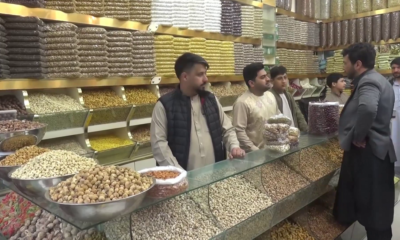
 Latest News3 days ago
Latest News3 days agoDried fruit market in Herat booms ahead of Eid-al-Fitr


